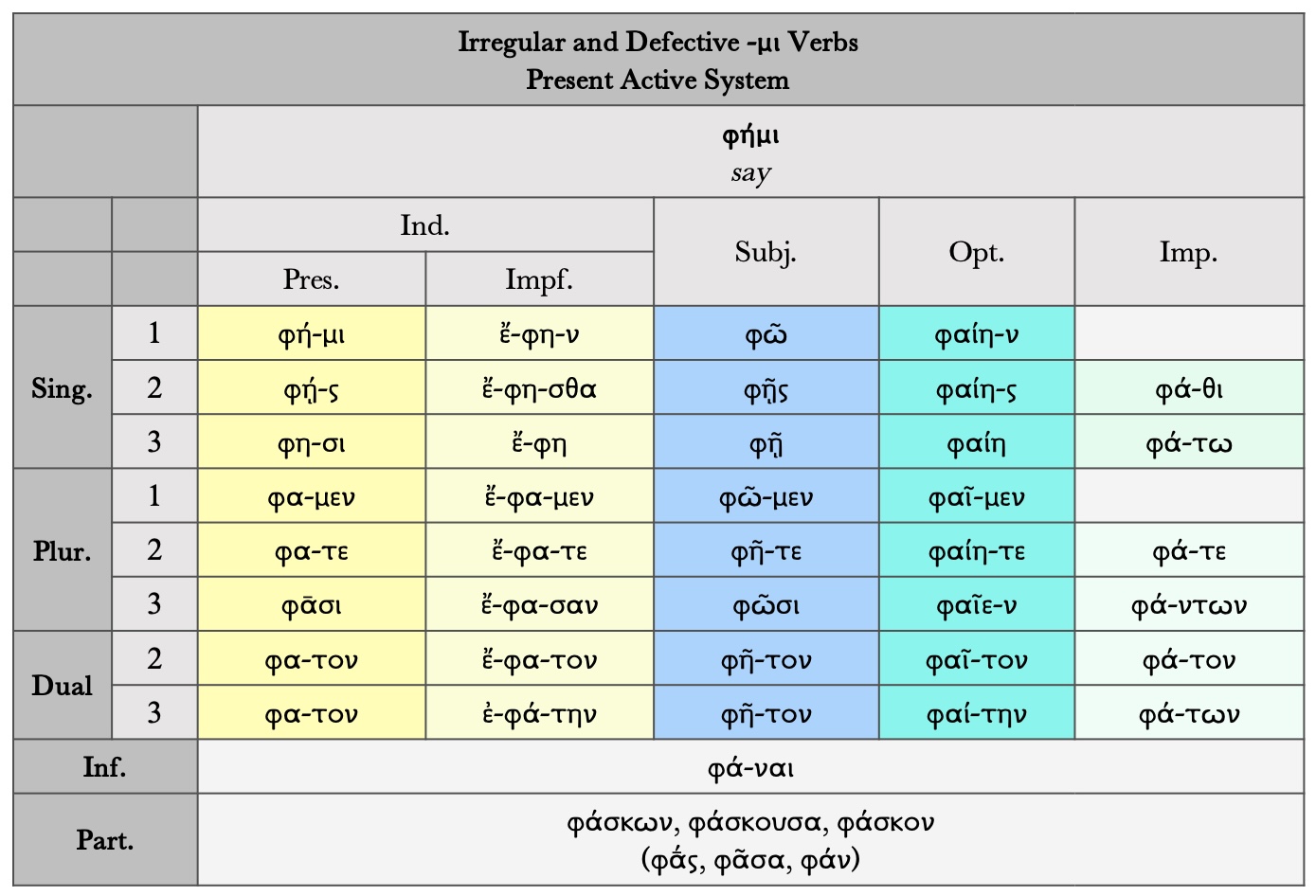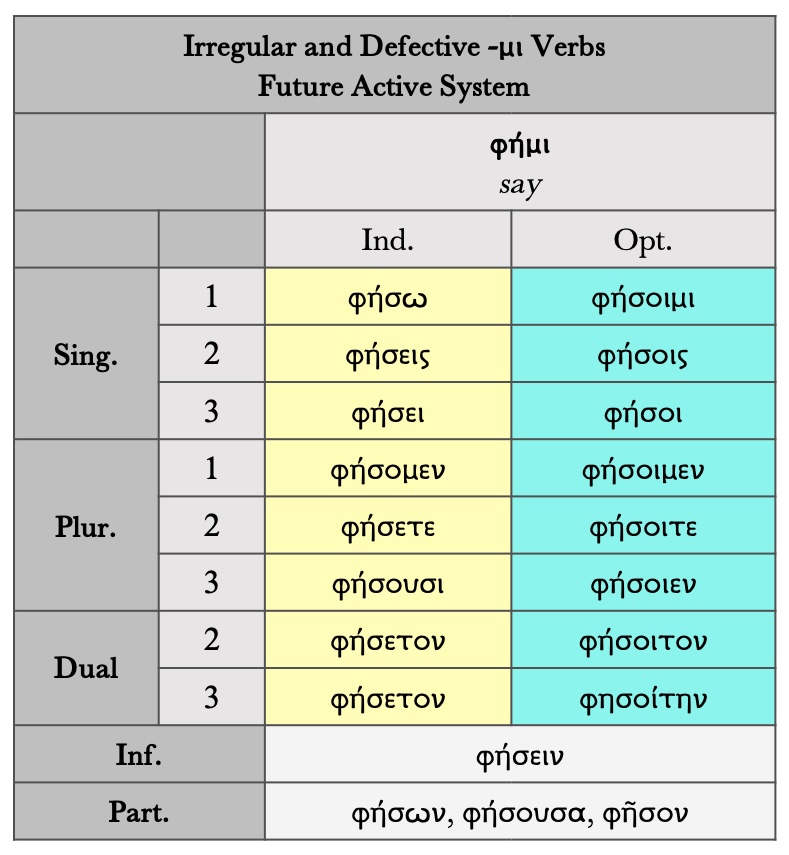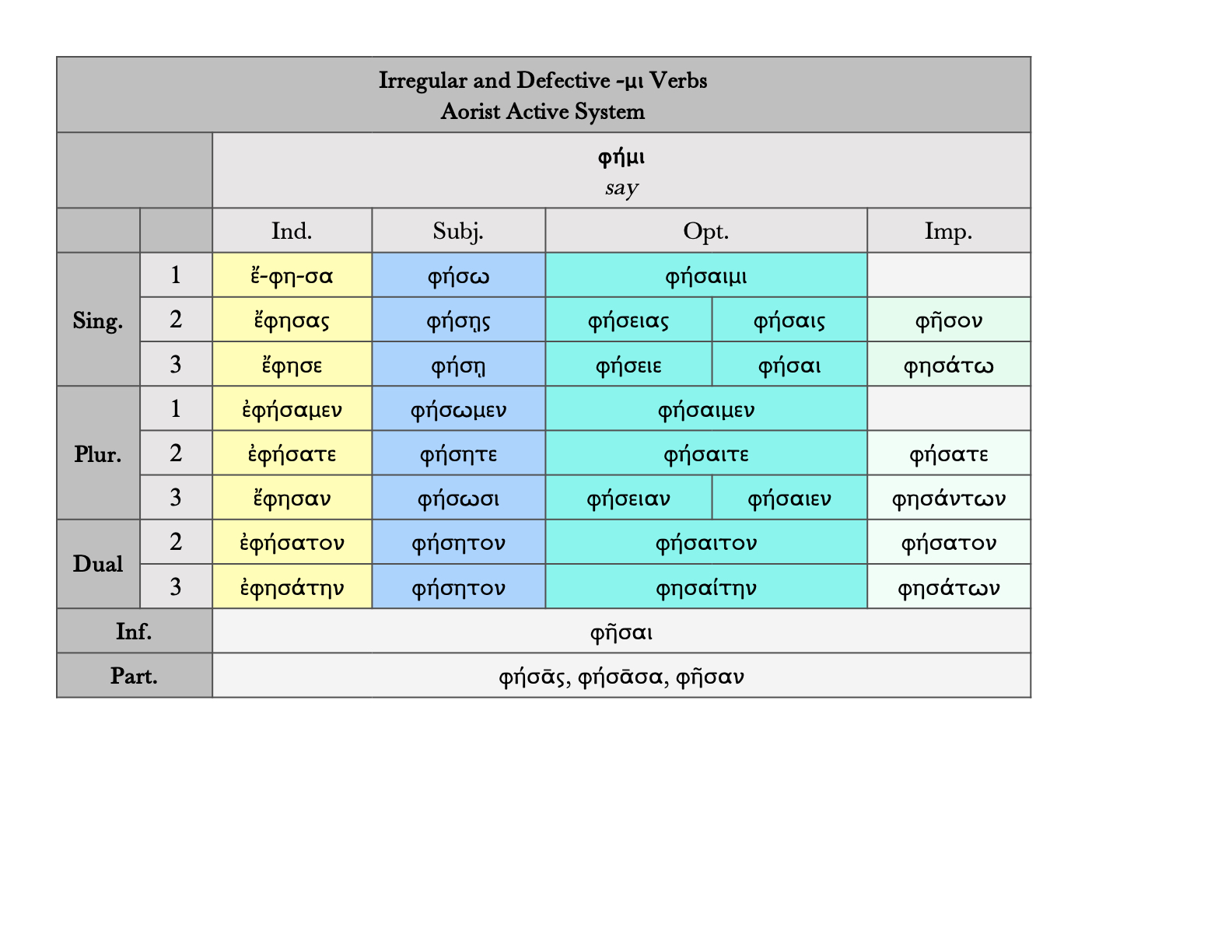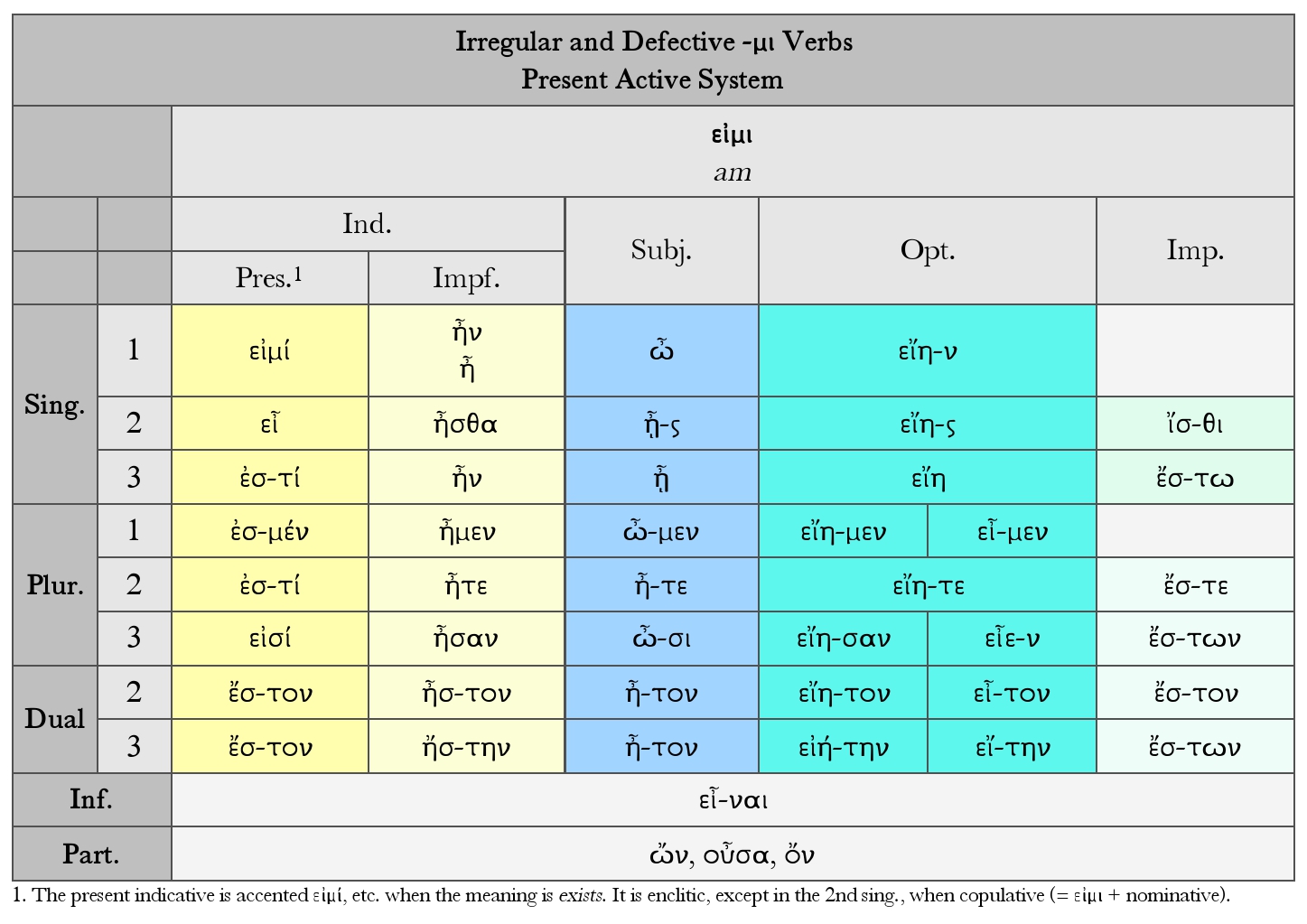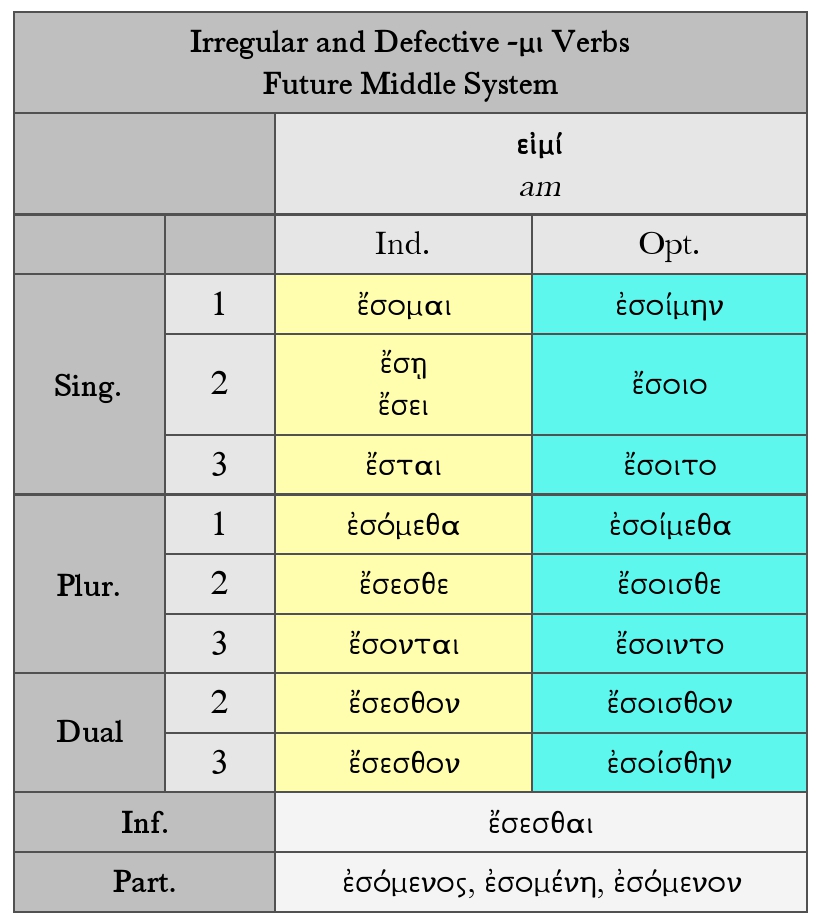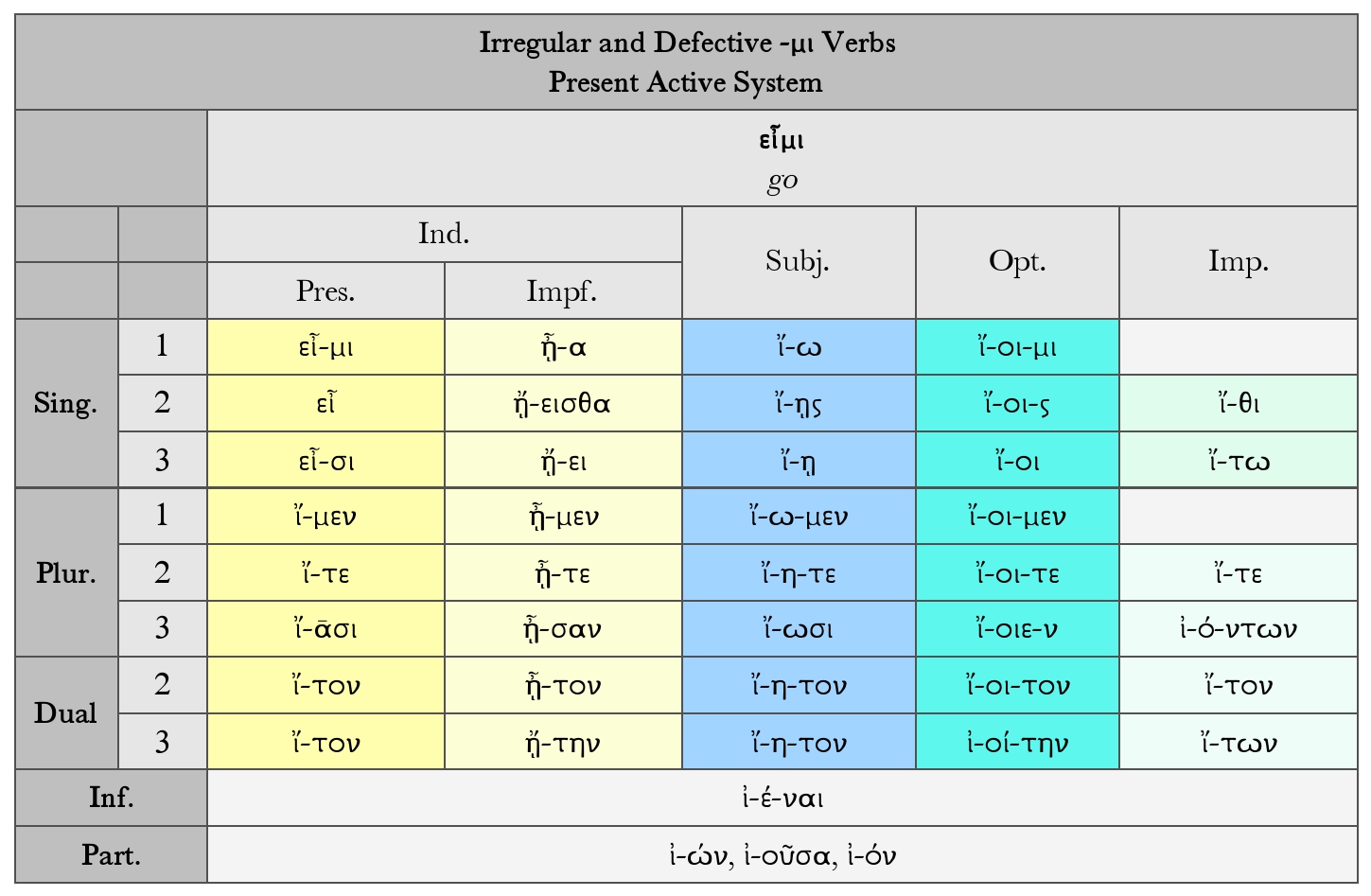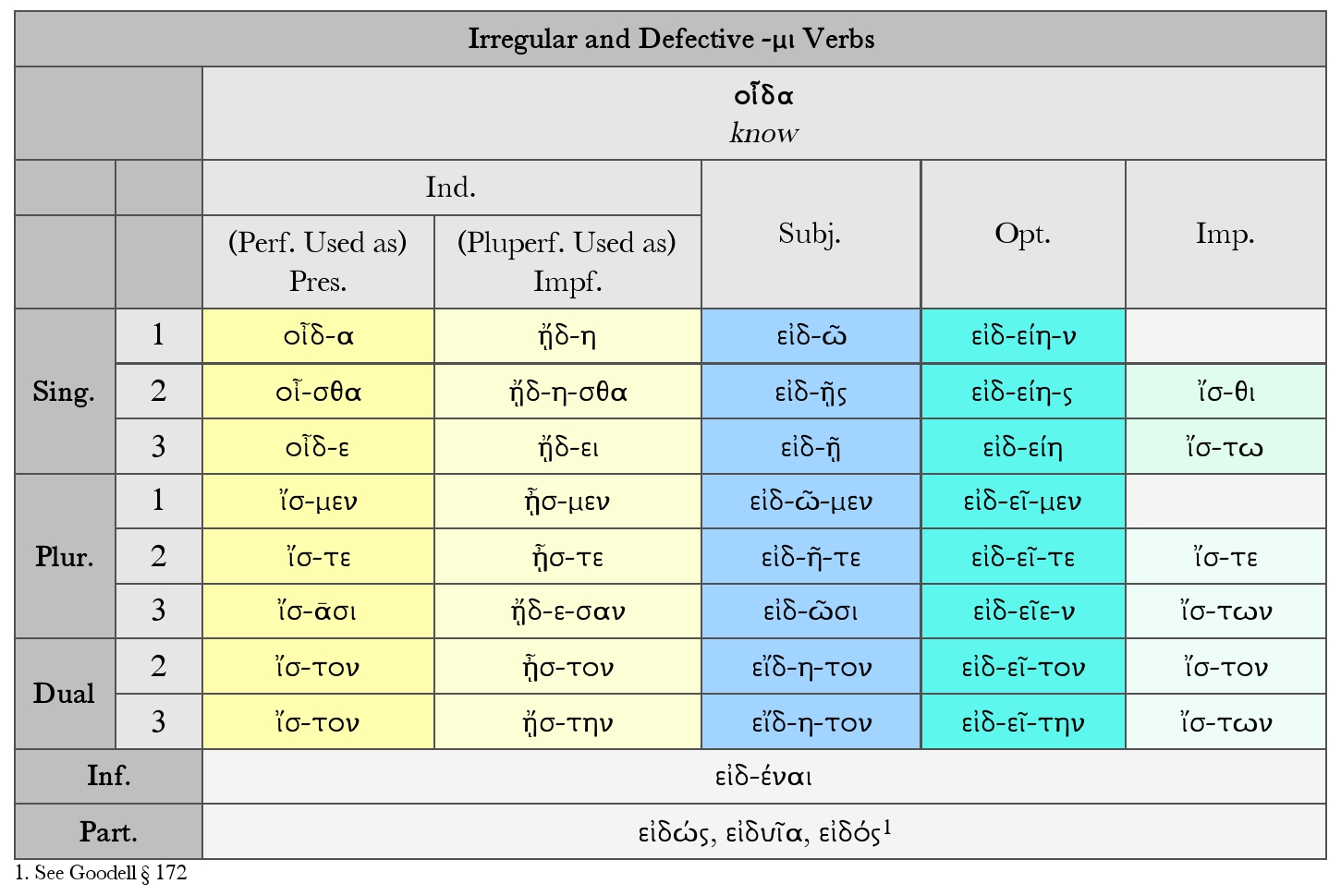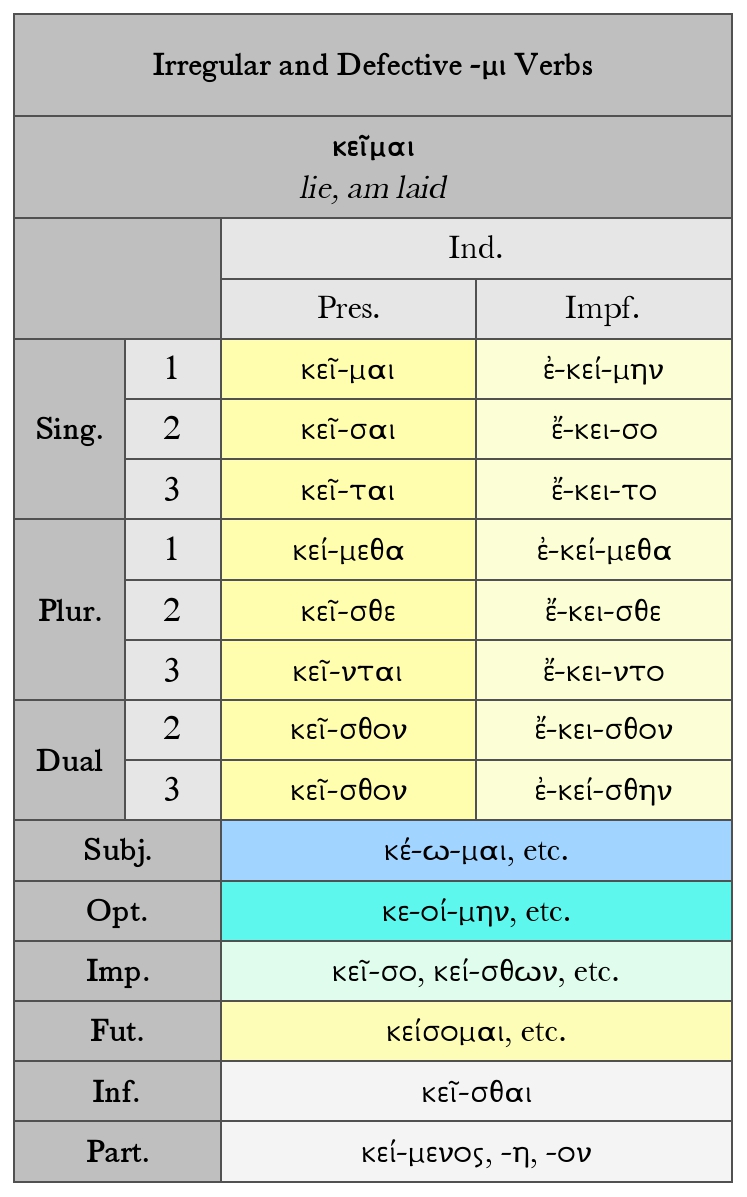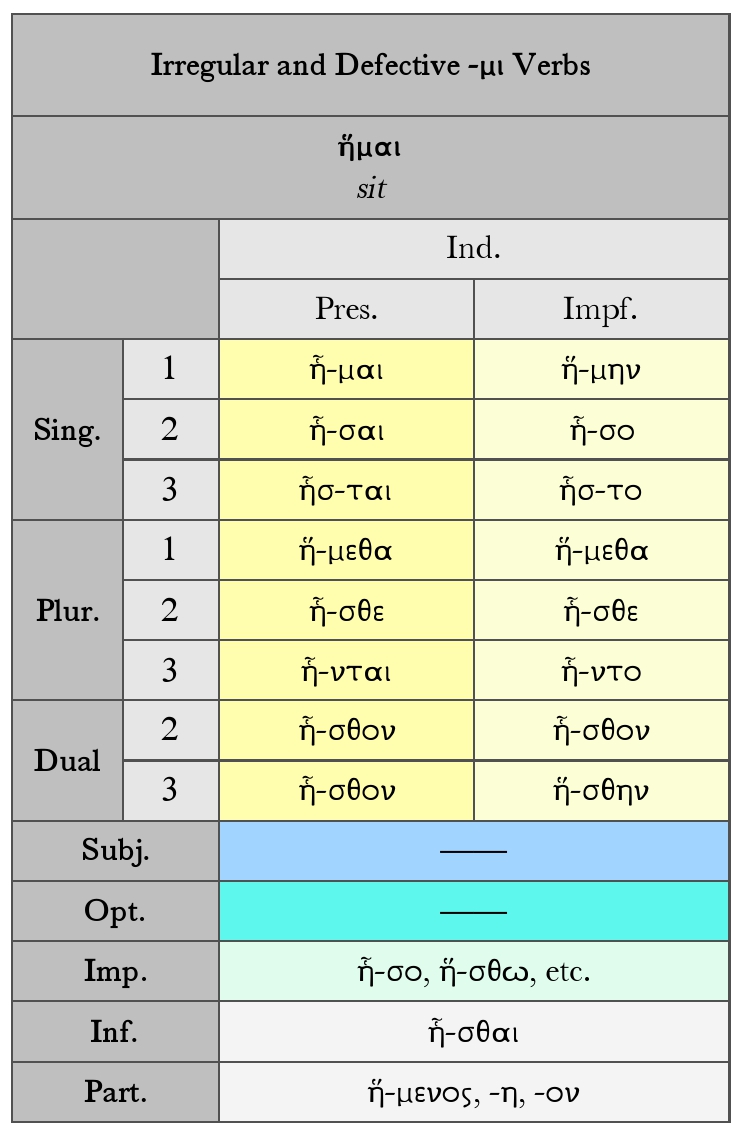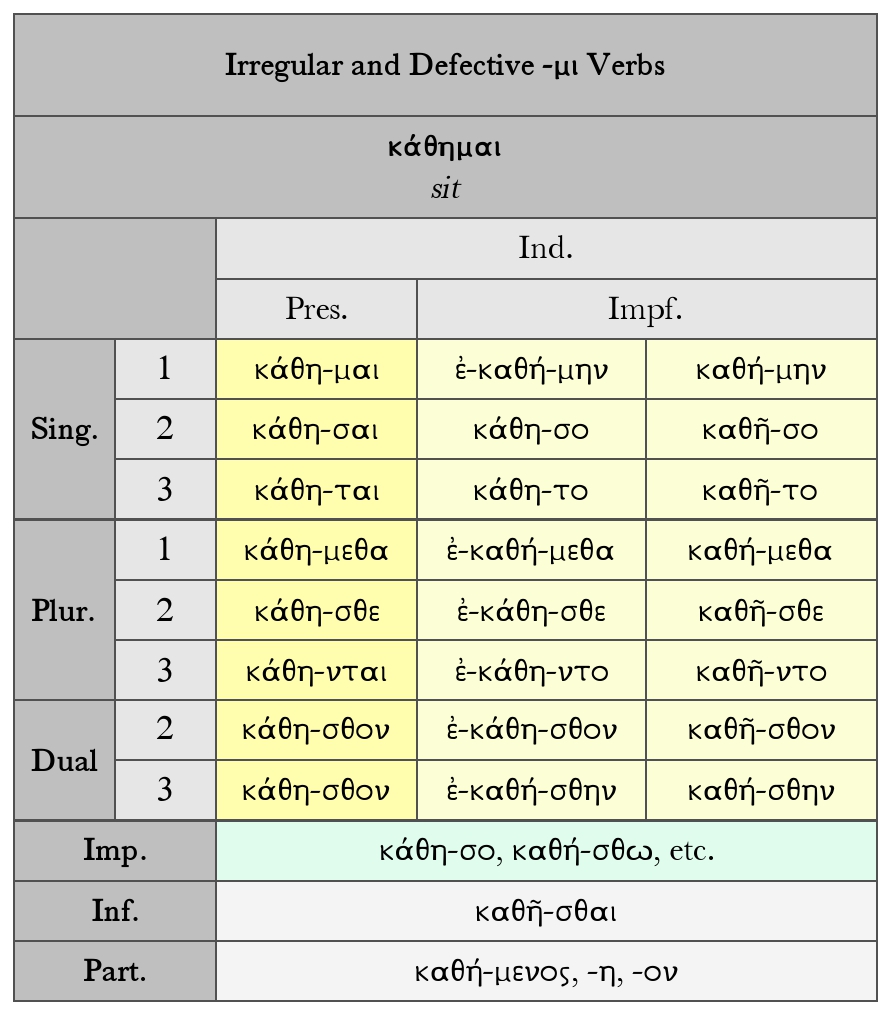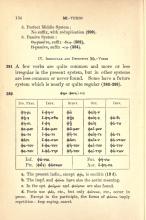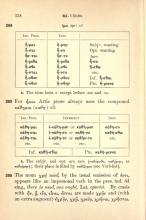381. A few verbs are quite common and more or less irregular in the present system, but in other systems are less common or never found. Some have a future system which is nearly or quite regular (§§ 382 – 389, below)
a. The present indicative, except φῄς, is enclitic (§ 19.d).
b. The imperfect and φάναι have also the aorist meaning.
c. In the optative φαίημεν and φαίησαν are also found.
d. Poets use φᾱ́ς, etc., but only φάσκων, etc., occur in prose. Except in the participle, the forms of φάσκω imply repetition: keep saying, assert.
e. οὔ φημι [Latin nego] means deny, refuse, say no.
f. Poets have a few middle forms, with no translatable difference of meaning.
383. With φημι belong the three forms ἠμι (enclitic), ἦν, ἦ [Latin aio], equivalent to φημι, ἔφην, ἔφη. The formulas ἦν δʼ ἐγώ (said I), ἦ δʼ ὅς (said he), are much used in reporting conversations.
a. In the subjunctive, optative, and participle -σ- is dropped (§ 55.a) and contraction follows.
ὦ for ἐ(σ)ω
εἴην for ἐσ-ιην
ὤν for ἐ(σ)ων
εἶναι is for ἐσ-ναι.
b.The present indicative, except εἶ, is enclitic as copula (§ 19.d), but accented when it means exist. The third singular is written ἔστι
1. at the beginning of its clause;
2. in the meaning exists;
3. in the meaning it is possible or allowed;
4. after οὐκ, μή, εἰ, ὡς, καί.
c. In the impferfect the form ἦστε also occurs.
d. The participle keeps its accent in composition.
παρών, παροῦσα
Also the future ἔσται.
παρέσται
a. In the imperfect are found also ᾔεσαν and (in later writers) ᾔειν, ᾔεις, ᾔειμεν, ᾔειτε.
b. The present indicative has a future meaning: am going, shall go. The subjunctive and optative have now present and now future meaning. The imperfect and participle have also the force of an aorist.
a. In the imperfect are found also ᾔδεμεν, ᾔδετε, ᾔσαν, and (in later writers) ᾔδειν, ᾔδεις, ᾔδειμεν, ᾔδειτε, ᾔδεισαν.
b. The root of οἴδα (ἰδ-) is the same as that of εἴδον (I saw) and Latin video; but the above forms never mean see.
c. The future εἴσομαι often means shall learn.
d. The participle εἰδώς has the form of a perfect, though present in meaning.
Also οἶδα, οἶσθα, οἶδε are somewhat like an α- perfect, but are always present in meaning; ἴσμεν, etc., the plural and dual, are present in form as well. The imperfect is also in part like a pluperfect in inflection; but compare the imperfect of εἶμι, go (§ 385, above).
387.
a. The infinitive κεῖσθαι keeps its accent in composition: κατακεῖσθαι.
b. Of the subjunctive and optative only κέηται, κέησθε, κέωνται, κέοιτο, κέοιντο are found.
c. κεῖμαι is often used as a perfect passive for τίθημι (put)
νόμους τίθησι he lays down laws
νόμοι κεῖνται laws are established
So in compounds also.
388.
a. The stem loses -σ- except before -ται and -το.
389. For ἧμαι Attic prose always uses the compound κάθημαι (καθη-, sit).
a. The subjunctive and optative are rare (καθώμεθα, καθῄμην, or καθοίμην); their place is filled by καθίζομαι (see verb list).
390. The noun χρή (need), by the usual omission of ἐστι, appears like an impersonal verb in the present indicative 3rd singular (there is need, one ought [Latin oportet]). By crasis with ἦν, ᾖ, εἴη, εἶναι, ἔσται are made χρῆν and (with an extra augment) ἐχρῆν, χρῇ, χρείη, χρῆναι, χρῆσται.
391. Two or more defective verbs may supplement one another and so make up what serves as one complete verb. This has happened with some of the commonest verbs, as in English am, is, are, was, be, or go, went. So in Greek for the aorist and perfect of εἰμι are used ἐγενόμην and γέγονα from γίγνο-μαι (become); the roots ὁρα:ᾱ-, ὀπ-, and ἰδ-, all meaning see, together make up ὁράω, ὄψομαι, εἶδον, ἑώρᾱκα, ὄπωπα, ἑώρᾱμαι, ὦμμαι, ὤφθην. See in the verb list also αἱρέω, ἔρχομαι, ἐσθίω, ζάω, τρέχω, φέρω, λέγω, ὠνέομαι.

